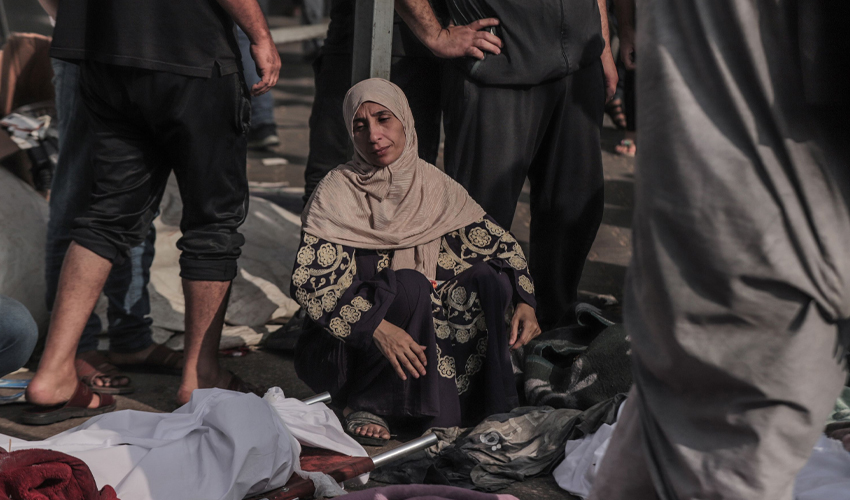More than a month after the Palestinian group launched the “Al Aqsa Flood Operation” operation, Hamas and Israel have reached an agreement on a prisoner swap arrangement while Israel persisted in its attacks on the beleaguered Gaza Strip.
Arab media quoted sources as saying that the two sides had agreed to exchange 100 detainees held by Hamas for the release of Palestinian women and children detained by Israel.

On Thursday, the White House announced that Israel will begin four-hour pauses in northern Gaza to allow people to flee hostilities and for humanitarian aid to be delivered.
The decision came after discussions between US and Israeli officials, including a call between US President Joe Biden and Israeli Prime Minister Benjamin Netanyahu.
The pauses will be announced three hours in advance and will apply to specific areas of northern Gaza. Israel has said that there will be no military operations during these pauses.
The White House called the decision a “step in the right direction” and said that it hoped it would lead to a longer-term ceasefire. However, the US also said that it would not support a ceasefire that “legitimizes” the actions of Hamas militants.
The humanitarian pauses are a welcome development, but it remains to be seen whether they will be enough to break the deadlock in the conflict. Both sides have shown little willingness to compromise, and there is a risk that the violence could resume once the pauses end.
It is important to note that the US has not explicitly called for a ceasefire, and its position on the matter remains unclear. The US may be hoping that the humanitarian pauses will create an opportunity for the two sides to come to the negotiating table, but it is also possible that it is simply trying to buy time in the hope that the situation will improve on its own.
Only time will tell whether the humanitarian pauses will be successful in bringing about a lasting peace in Gaza. However, they are a step in the right direction and should be welcomed by all who are concerned about the suffering of the civilian population.



























